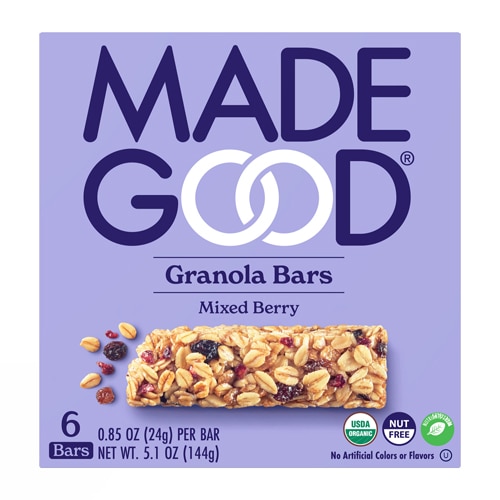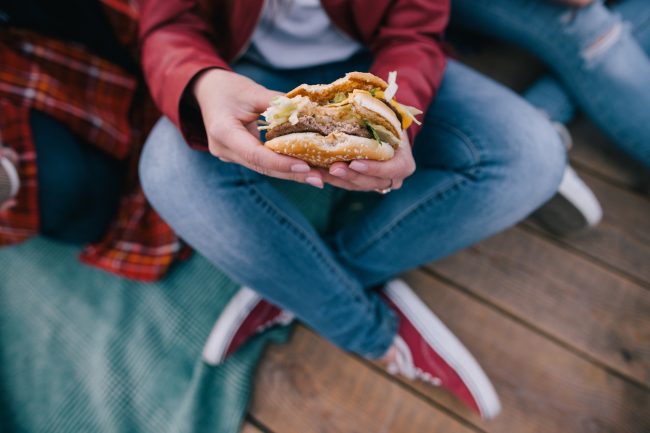Healthy eating is difficult to maintain for anyone, but this is especially true with your teen’s health. Not only are their hormones exacerbating their crazy cravings, but teenagers also face an onslaught of too-readily available junk food, making it the easiest and most enticing food choice – every time.
The best way to help your teens navigate through American’s murky relationship with food is to first understand why they might have a junk food addiction. Understanding the reasons your child reaches for those sugary, high-carb, high-fat treats will open your eyes and put you in a better mindset to help them.
Here are five major reasons your teen is struggling to shake their junk food addiction and how you can help.
1. Junk food is a super stimulus
Nobel Prize winning scientist, Niko Tinbergen found he could control animals by creating super stimuli – bigger, brighter eggs, dummy butterflies with unnaturally vibrant markings – and animals would be drawn to these dummies over the real thing, even abandoning their own eggs and possible mates in the process.
Some scientists believe junk food creates a similar reaction inside the human brain as the crunch of chips, the carbonation of soft drinks and the cold sweetness of ice cream creates super stimuli, which humans prefer over natural, healthy foods. This intense stimuli is difficult for humans to process. And it’s especially difficult for teens as their brains are still developing, making it harder to manage their cravings for these super stimuli foods.
How can you help?
Don’t keep these stimulating foods (chips, cookies, ice cream, soft drinks) in your house. At the very least, minimize those snacks inside your cupboards. Emphasize to your teen that they don’t need to cut out these foods entirely, but encourage them to choose healthy snacks – or “healthy junk food” – whenever they can.
Teach your teens about super stimuli and how they can be destructive to their health. Gently remind them about how important it is to fuel their body with healthy foods – foods that will energize them versus spike their blood sugar like the hammer drop at a carnival.
2. Teens are more prone to risk-taking behavior
Every time you eat high-sugar foods, endorphins are released, making you feel a little bit better. Because young people’s brains are still developing, this endorphin release is much more powerful inside their brains, training them to crave junk food and making junk food addiction a much stronger vice.
Teens are also less likely to be thinking of their future and more focused on the moment, meaning they are not planning ahead. As such, they are more willing to fuel their bodies with junk food before considering the future consequences. While your teen is instantly satisfied by the rush, their lack of hindsight only serves to satisfy the junk food addiction.
How can you help?
Encourage your teen to think through the food choices they make and emphasize the importance of healthy foods. Show them how junk food can negatively affect their developing brain and lifelong habits. Help your teens replace detrimental habits with activities that will also release endorphins, such as exercise.
3. Junk food is cheap and convenient
Your teen’s pockets are probably not very full of cash, considering most of their time and energy is spent in school and with extracurricular activities – not at work. This makes their spending tight. And what’s the cheapest option when they’re hungry? That’s right: junk food. When it’s between more healthy convenience foods and dollar-menu fast food, their thin wallet is as likely to make the choice as their taste buds. While some fast food chains are making healthier options available, they still have a long way to go.
How can you help?
Pack your kid’s lunch with enough food to get through the day, so they don’t have to resort to unhealthy snacks when their stomachs start to growl. Just make sure you’re packing food they actually enjoy – and maybe even picked out themselves when you were food shopping. Otherwise, your efforts will be fruitless.
4. Sleep deprivation contributes to poor food choices
Just like the assault of modern junk food on young people, the always-on technology is robbing teens of sleep. That lack of sleep shows up everywhere from their school work to, yes, their food choices. Evidence shows there’s “an inverse relationship between hours of sleep and risk of childhood obesity.”
How can you help?
Encourage your kids to stick to a proper sleep schedule, suggesting they’ll feel better and make better food choices throughout the day. A “lights out, screens off” rule can also help your teens (and you) develop good sleeping habits. Of course, this may take a little extra effort if your child suffers from nomophobia, a fear of being without a mobile device or within mobile contact.
5. Junk food can be a coping mechanism for anxiety
Your teen is under pressure to do well in school, to keep up with their friends and work hard for their team. And if they happen to have a boyfriend or girlfriend, their time is utterly packed with competing priorities. With everything going on, they’re left with little to no time to relax and recharge. This stress burns lots of energy, (and their teen bodies are already burning lots of energy) leading to more food cravings, both for that energy boost and that addictive dopamine hit.
How can you help?
Teach your teenager other ways to cope with stress and anxiety. This can be done through meditation, talking through their problems or some form of physical exercise. Simply walking can help reduce your teenager’s anxiety.
Whatever the reason, it’s important to realize that change won’t happen overnight. Be patient with your teen, After all, it takes time to grow and learn to make the right choices. And remember, the best way to encourage your teen to make the right choices is to be a good role model. So lead by example by exercising regularly, eating healthy and showing your loved one that you practice what you preach. Your teen will be better off for it – and so will you.




